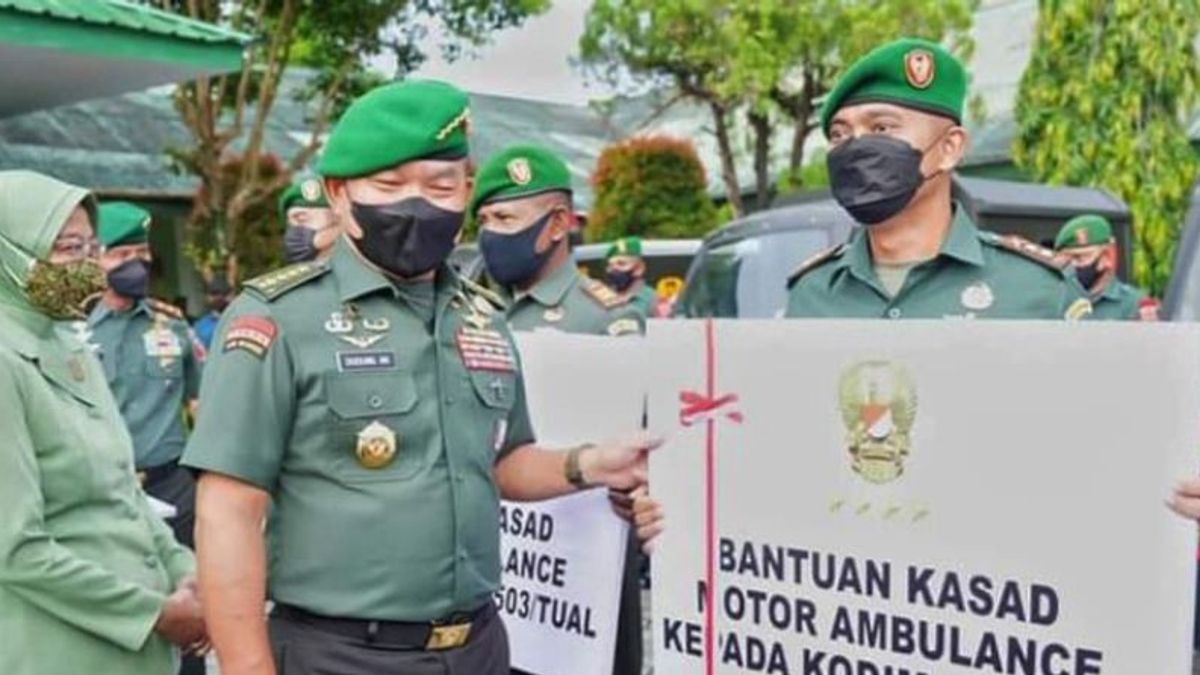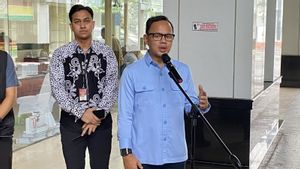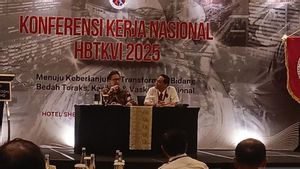AMBON - Army Chief of Staff (KSAD) General TNI Dudung Abdurachman handed over the assistance of five motorized ambulance units to support health services in the Kodam XVI/Pattimura area, which covers Maluku and North Maluku.
The motorized ambulance assistance was handed over directly by Dudung to five military district commanders in conjunction with a visit to the Level II Army Hospital Professor JA Latumeten (RST) Ambon.
"With this motorized ambulance, it is hoped that it can help people who need health services, especially in remote areas that are difficult to reach by ambulances," said Dudung in Ambon, Wednesday, April 13.
Three of the five motorized ambulances will be operated at three Kodim in Maluku Province, namely Kodim 1502/Masohi, Kodim 1503/Tual, and Kodim 1507/Saumlaki; while the remaining two are for Kodim 1508/Tobelo and Kodim 1510/Sula in North Maluku Province.
The motorized ambulance is an innovation from Korem 151/Binaiya, Kodam XVI/Pattimura, which was launched by Dudung on the sidelines of the TNI AD Leadership Meeting (Rapim) on Wednesday (2/3).
The ambulance is the spearhead of handling the COVID-19 pandemic and is called the "Army Ambulance in the Heart of the People". These vehicles can also transport patients in an emergency and require early treatment.
The TNI AD plans to build 20 motorized ambulances to be deployed in Maluku and North Maluku due to limited health facilities in those areas. Dudung hopes that the presence of a motorized ambulance can support efforts to improve public health services by the Pattimura Military Command.
In addition to handing over a motorized ambulance, Dudung also took the time to visit the Army Hospital Level II Professor JA Latumeten (RST) Ambon.
The Head of Health for Kodam XVI/Pattimura, Colonel Ckm Bima Wisnu, explained that the condition of the hospital owned by the Indonesian Army was still limited in terms of the availability of medical equipment and health workers, even though the RST had become a reference for the TNI in Maluku and North Maluku.
"The main problem is the lack of proper bed facilities. The hospital has a minimum of 290 beds, while here there are only 128 beds," said Bima Wisnu.
In addition, RST Ambon does not yet have standard facilities that can support health services, such as eye polyclinics, VVIP inpatient rooms, hemodialysis or dialysis facilities, and blood banks.
RST Ambon also does not have a NICU (Neonatal Intensive Care Unit) and PICU (Pediatric Intensive Care Unit) or intensive care room for infants and children who require special treatment and care.
In fact, he continued, the number of specialist doctors at the hospital was also limited, with the absence of surgeons, anesthesiologists, eye specialists, pediatricians, lung specialists, psychiatrists, radiology specialists, neurologists, cardiologists, clinical pathologists, and pathology specialists. anatomy.
According to the Army Chief of Staff, the problems faced by RST were used as input for discussion.
The English, Chinese, Japanese, Arabic, and French versions are automatically generated by the AI. So there may still be inaccuracies in translating, please always see Indonesian as our main language. (system supported by DigitalSiber.id)













